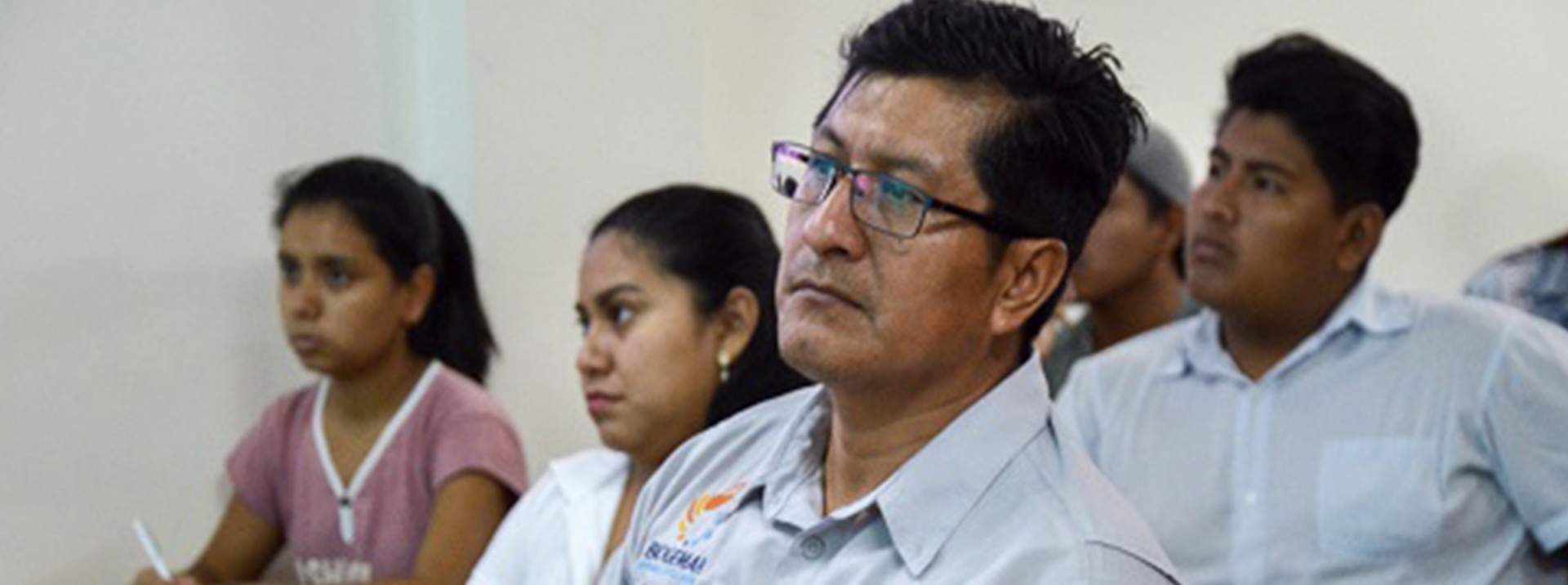The ECOAQUA institute researcher Juan Manuel Afonso López has offered students of Marine Biology from the State University Peninsula of Santa Elena a course on "Genetic improvement of shrimp in the industrial sector of Ecuador", fruit of the collaboration between the University of Las Palmas de Gran Canaria and the company BIOGEMAR, S.A.
The genetic improvements of shrimp was the focus of the theoretical and practical course that professor Juan Manuel Afonso López, member of the University Institute of Aquaculture and Marine Ecosystems (ECOAQUA) of the University of Las Palmas de Gran Canaria (ULPGC), offered during the month of May in the State University Peninsula of Santa Elena, Ecuador, as part of the work of the international project ECUANARIA®.
The course, entitled "Genetic improvement of shrimp in the industrial sector of Ecuador", was held from 14 to 21 May and was attended by students of Marine Biology from the Ecuadorian university.
Researcher Janeth Galarza Tipán, coordinator of the event, explained that this specialization course has been based on the study of DNA, in order to achieve genetic combinations to improve shrimp farming, achieving better robustness and growth.
The ULPGC agreed, in 2017, the transfer of innovative technology that would allow the implementation of genetic improvement for shrimp farming to the Ecuadorian company BIOGEMAR, S.A. The project, called ECUANARIA, and directed by Juan Manuel Afonso, has been led by the Aquaculture Research Group (GIA) of ECOAQUA and the ultimate goal has been precisely to improve the production of white shrimp in terms of growth and robustness, as well as assess the quality of the animals.
The technology developed by the ULPGC had the added value of interdisciplinary collaboration in the fields of genetics, engineering and aquaculture. Thus, the researcher Javier Lorenzo from the University Institute of Intelligent Systems and Numerical Applications in Engineering, has developed a software to speed up the presentation of the improvement values of thousands of animals for growth, robustness and quality traits.
Likewise, the MEMS group, led by researcher Juan Antonio Montiel Nelson, from the University Institute of Applied Microelectronics (IUMA) of the ULPGC, has designed a database that can be managed from any continent. On the other hand, in addition to the two previous applications there is a software developed by the researcher Jesús Fernández Martín of the National Institute of Agricultural and Food Research and Technology (INIA), to define how the animals are going to mate; and in the ECOAQUA laboratory the working algorithm has been designed as well as specific molecular biology tools of shrimp for the characterization of genetic variability. All these tools are essential to achieve the implementation of the developed algorithm, according to the speed of the shrimp production cycle.
Among the business benefits of the project is to avoid inbreeding, so that, in the future, animals can not create any problems in terms of growth or deformities. In addition, with this technology the objective has been set to gain, from generation to generation, around ten percent growth and six percent survival, quite important rates in this sector.
Juan Manuel Afonso travelled to the National Congress of Ecuador in 2013, under the context of the Ibero-American Network of Genetics and Immunology GICPA, promoted by the ULPGC, to inform aquaculture companies in the sector about the lines of research into genetic improvement carried out at Canarian university, as well as other participating Ibero-American universities and research institutions. There he met the owner of BIOGEMAR, Walter Intriago Díaz. From that moment on, GIA-ECOAQUA began to work in the area of Marine Genetics to articulate a proposal for the implementation of genetic improvement in the company's production processes.
In Ecuador there are about 201.000 hectares of shrimp farming, an industry that employs one million people.


